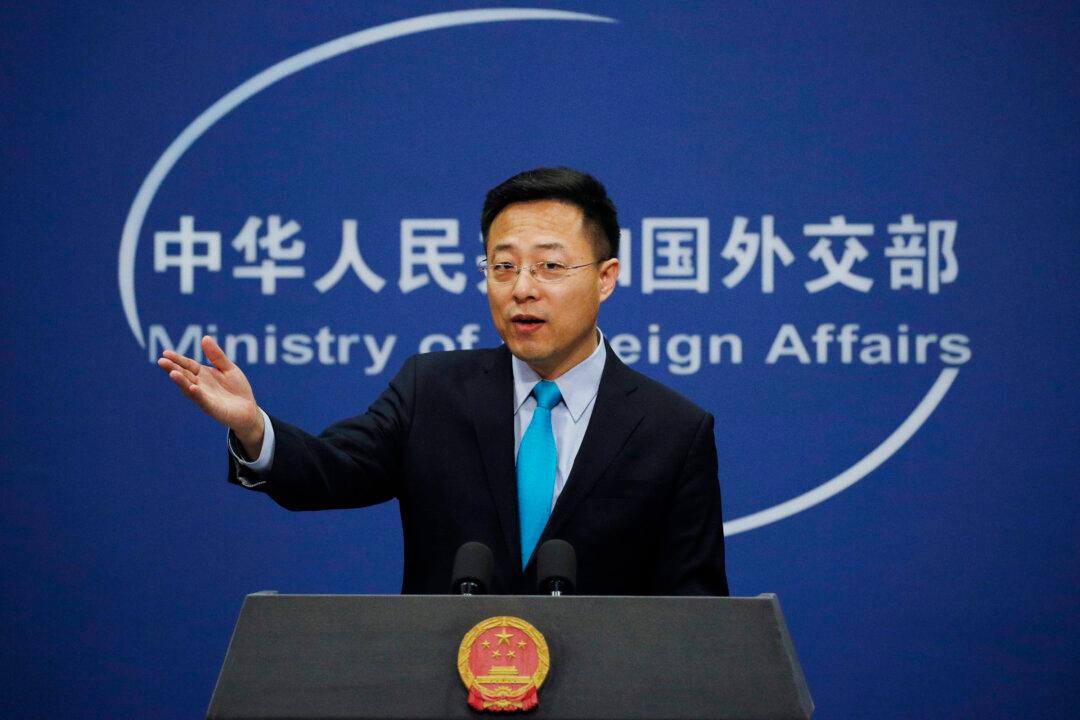A Chinese official’s tweet of an image of an Australian soldier that sparked a furious reaction from Canberra was amplified across social media by unusual accounts, of which half were likely fake, an Israeli cybersecurity firm and Australian experts said.
The digitally altered image of an Australian soldier holding a bloodied knife to the throat of an Afghan child was tweeted by China’s foreign ministry spokesman Zhao Lijian on Monday.





